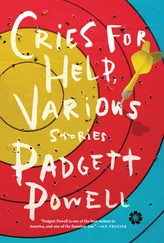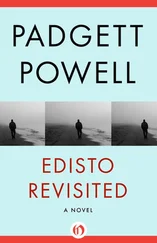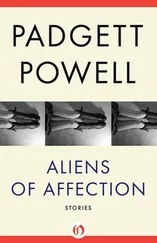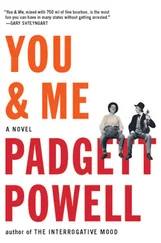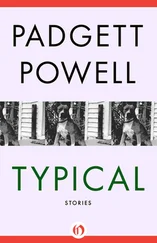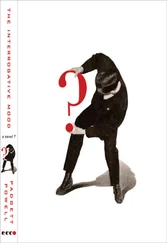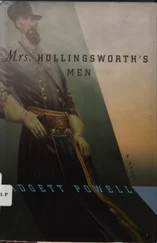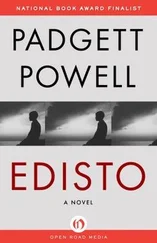She drew a hot bath. She had found this was a tonic thing to do in the middle of the day, especially if you ran the water too hot and allowed yourself plenty of time to waste in it. She traipsed around naked, ostensibly collecting little bath necessities, a little Clinique this in a bottle the color of a stinkbug, the eau de that in cut glass, a German boar-bristle brush with a nice waxed wood handle that felt much better to your hand than the bristle did to your skin. She did not need or want these things. She wanted only the good heat and the water and her calmed mind. She got in the bath.
The water was hot enough to make her wonder if she should let it cool — perhaps she was herself a giant human egg set to boil — but stepping out of a tub once in it is a hassle greater than burning yourself, so she slipped on in. The determination was good. She was level with steam coming off the water. It went over the surface of the water like miniature clouds, which is what it was. She moved these small clouds about gently with her hands. The clear, unbroken water under them was perfect and beautiful.
She suddenly wanted a lemon beagle. The prospect of this yellow-and-white dog was vivid — a washed-out-looking gentle thing that hunted rabbits with great passion and even greater skill but meant no harm to rabbits. She was not sure if you called it a lemon beagle or a lemon-and-white. To lie in a scalding tub of water in the middle of the day in a transport of steam and want a dog she had not thought of or seen in maybe thirty years, and have this be the dominant want in her heart at this moment — was she trivial? Was she merely idle?
She entertained this thought: she was losing her way. Was she losing her way? The question presumed she had once not been losing her way. Had she once not been losing her way? She thought it obvious that all people, or virtually all, must for a time be convinced they know their way. It has not yet occurred to them that they do not know their way, to be more precise. Then at some point it does occur to them. They may suddenly, or gradually, feel that they do not know their way, and they may then be able to doubt that they ever actually did know it. Given the condition they suddenly find themselves in, they wonder what species of hoodwink convinced them they ever thought they knew what was going on. They had merely trotted along, confident and doglike, as people do, full of pride and certainty and ambition and their little educations, as people are supposed to. And some of them, like Mrs. Hollingsworth, come to a halt. In a tub, in a store, in a kitchen, in making a list of real things, in making a list of surreal things, in cooking for a sane man or cooking for a fool.
She thought again about the place she’d been. Was there a fool it would nourish, real or not? What if the fool it would nourish was only the cook? The cook who lay under small hot gambols of surreal fog the idle live-long day wanting a bleachy yellow dog? Not wanting even, perhaps, probably, a real dog but just this prospect of a dog? No damned shed hair and Volvoing it to the vet where the labels on a vaccine read like computer applications and cost as much. She just wanted a dog.
So maybe she should just cook. Cook the fool’s meal for herself, the fool cook. Then she saw the man who had left the bed and been left by the woman, who had been beaten by the boys and been left by the boys. He was in his cheap red plaid shirt, sober and alone. Anyone else on earth in that shirt was not sober and was not alone.
He was puzzling in the realm of his father and his father’s mother. Mrs. Hollingsworth could not tell what he was after. He did not know himself, perhaps, probably. She was tired of that: “perhaps, probably.” She’d make it “perbly.”
Perbly he was wondering how his father could be a football hero and go to war and have been slapped with a knife by his mother and still love his mother, when he the son would not even go out for track, yet would run from war, or a street fight for that matter, and did not kiss his own mother beside her very grave. Perbly something like that. He had somehow come to be a bleached-out yellow dog, afraid even of love, if we are to judge from his travail with Sally and Helen of Troy, perbly Sally’s later incarnation.
Perbly he was waiting for someone to cook him a fools meal. She was tired of perbly. He was waiting for a meal. He was waiting to be transformed into a man. He was waiting for Forrest to ride by and ask him if he wanted to go out for track, so to speak. It had been at Forrest High School, after all, that he first deigned not to participate, fearing a little pain in the legs. The legs had been good enough to attract the coach, whether the coach was a pederast or legitimate. He should have tried the coach, either way. For whatever reason, or complex of reasons, real or surreal, novel or not, that Mrs. Hollingsworth could dream up or not, that were to be found in her brain or in her heart or were not in either place and were possibly in some real place, the moment he did not regard the coach as a man is the moment he lost his way. Mrs. Hollingsworth was a woman who had lost her way.
The man was getting his legs back by carrying sacks of grain. When Forrest came by, he would need nourishment to accept whatever role Forrest offered him — stopping in a leather-creaking surge of horse stink and steel, saying, “You aint no relation to Bragg or Floyd, saddle up, you want to fight. Put that hound dog in a saddlebag. We could use some rabbit,” and gone in a blur of saber and canvas and horse snort and clenching rump.
Mrs. Hollingsworth would cook. She would be the campaign cook. That night Forrest would not remark of the food. He would never talk of food. He would say, “Picked up a boy with a yellow dog today. Dog looked like a ghost of a dog. Boy about the same. Boy looked like a Floyd. Hope to God he aint. Dog look like a damn lemon. Don’t nobody tell that Jackson character we got us a lemon dog.” There would be a round of chuckling, some polite and some earnest, at this levity.
Mrs. Hollingsworth made some notes in the air over the steamy water:
1. The levity of the doomed has no equal.
2. Only the airspace at Appomattox is original, where it was. The floor is not the floor they trod, the window not the window that admitted the light on the document they signed. The light is not the same, but it is in the same place. The space only is truly preserved.
3. All those fraudulent bricks. Only 4 percent of them original, and none of them in the right place.
4. All those fraudulent men. What if they all came through the door? Who was she waiting for? If Forrest himself came to dinner, would she not find fault even with him? Would she not say, No, General, you are lying: it was a black thing, to the bone. And Forrest would say, Ma’am, you been listening to too much Yankee radio. Man could handle the NVA, but I be God if he can fight the NPR. It’s too many of ‘em. Hell, they bout brought down Lincoln hisself, only straight-thinking sober man they had.
And this would be funny, and true, and she would like this Forrest for a moment. But then what? Then did not the old torment begin? And what was the old torment? The old torment was that she was alone now because she had been afraid to be alone when young. And, afraid to be alone young, she had made herself into the contemporary companion to whoever was at hand and handy. She had not made herself into herself. She had made herself into a model companion for other people who themselves were not waiting to become themselves but who were also modeling for companionship. So they had all become model companions.
It went without saying that she had not waited for the person she might have loved, either. So it was not surprising that now, when her station in life suggested she was mature and sane, she was dreaming of wildly improbable men like a schoolgirl. Well beyond a schoolgirl: she was in a scalding tub of water in the throes of bourgeois idleness dreaming up the most ornery sonsofbitches she could. She had lost her mind. It was fortunate that that did not matter. There were certainly so many excess idle minds about that it did not matter if a few, or a lot, strayed. She could fire out of this tub and make chicken cacciatore and Jell-O and plan a dinner party and buy some symphony tickets and sell a house and do Jane’s video workout, or not. Not looked right.
Читать дальше

